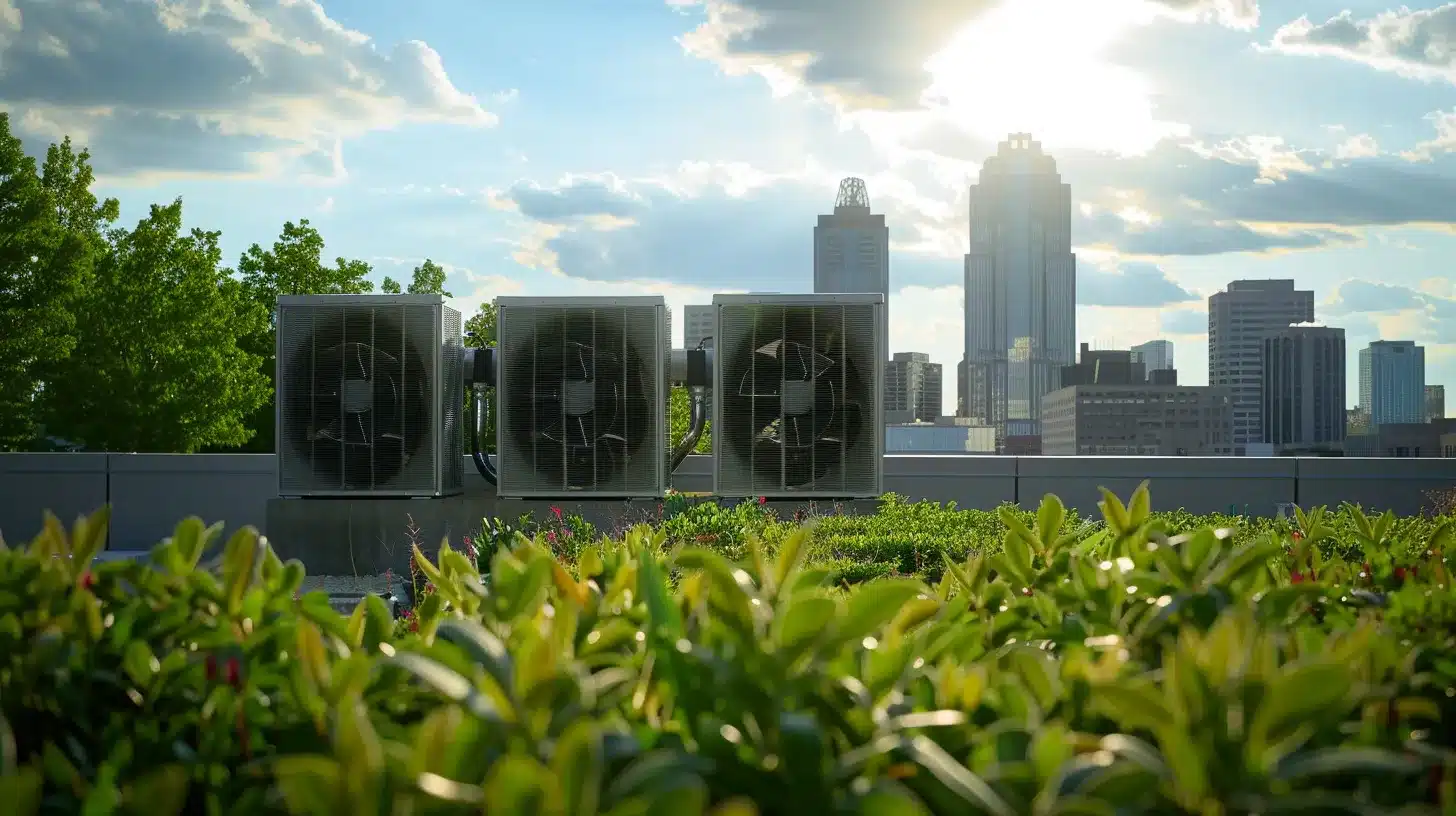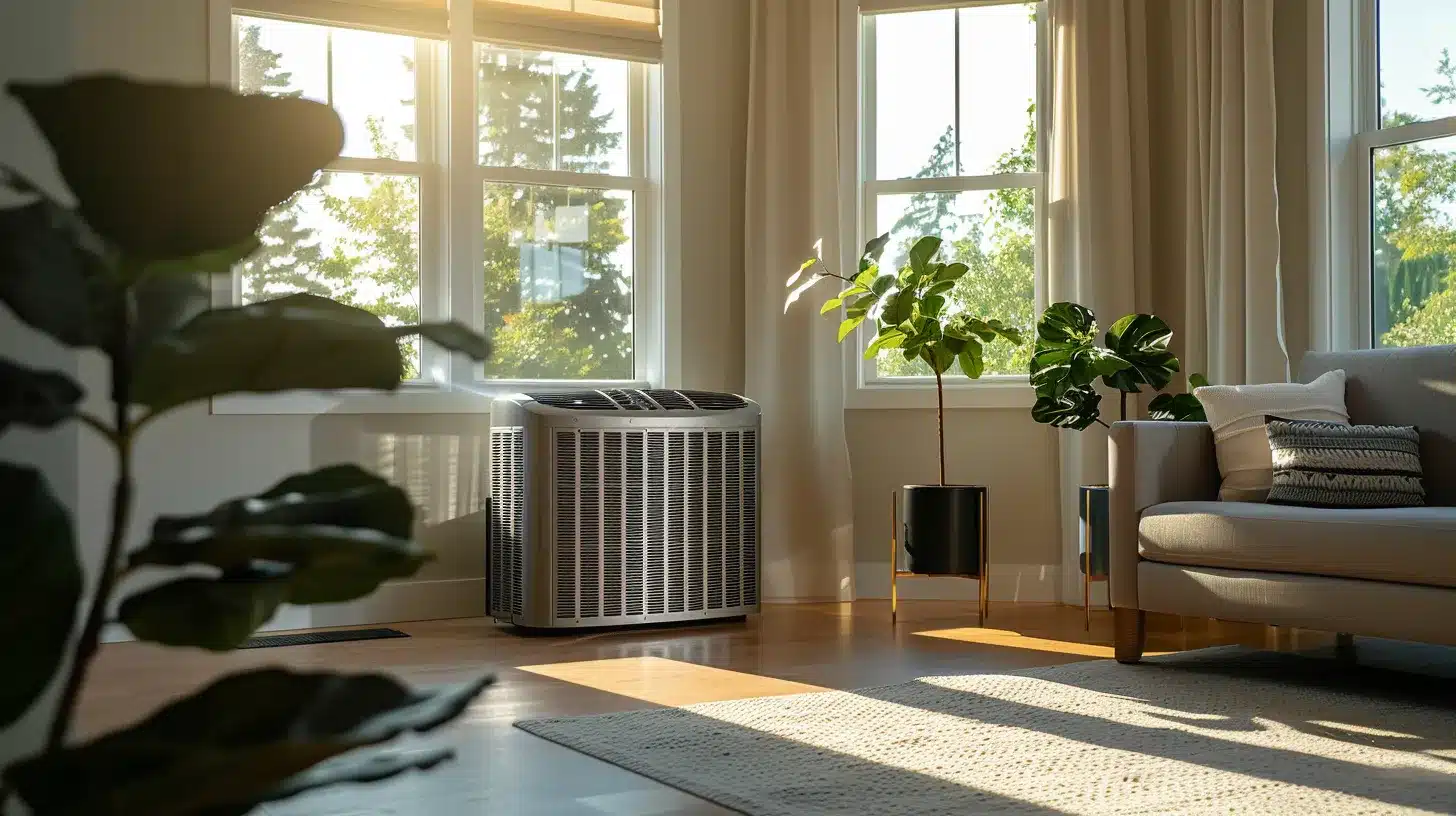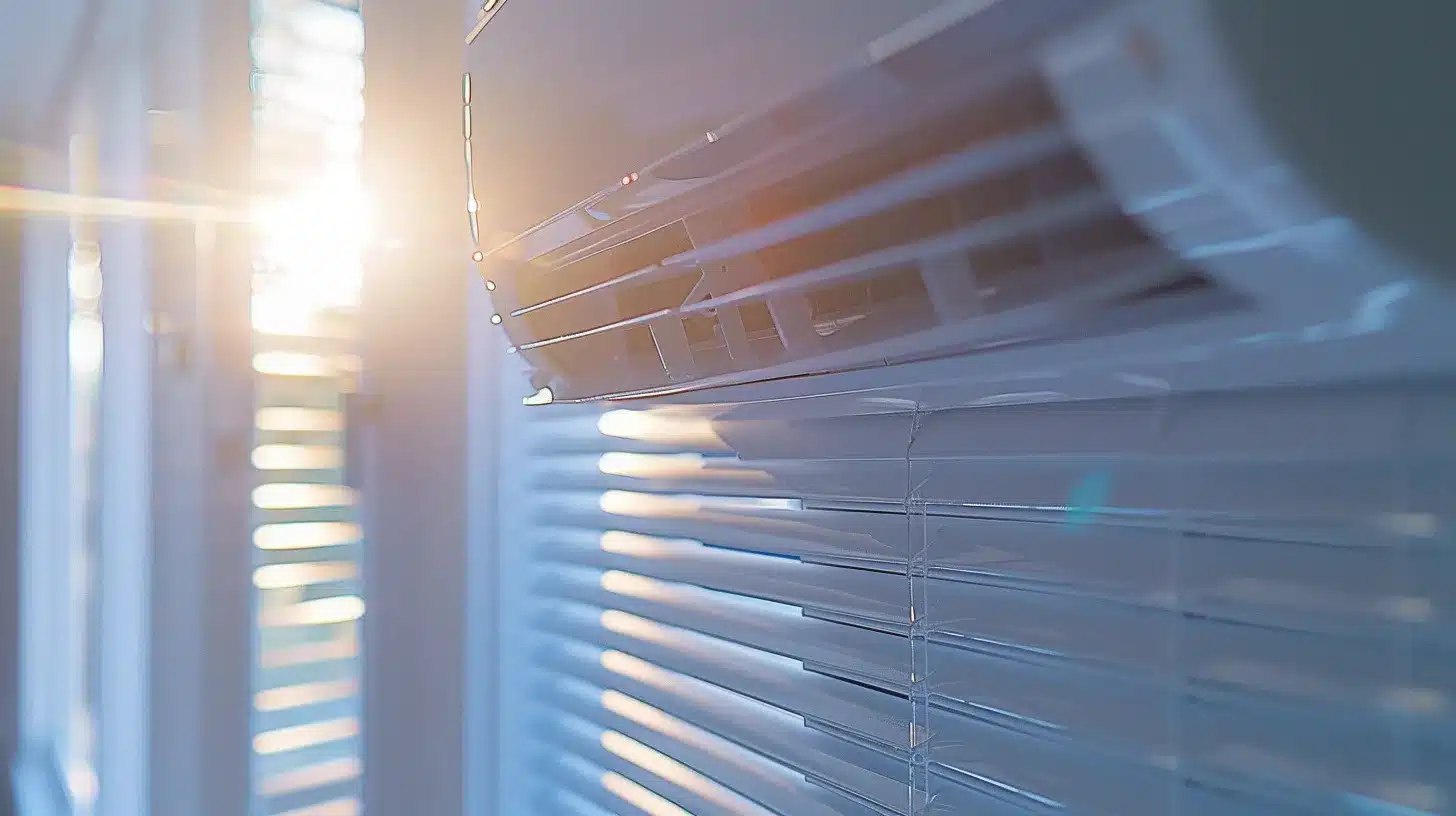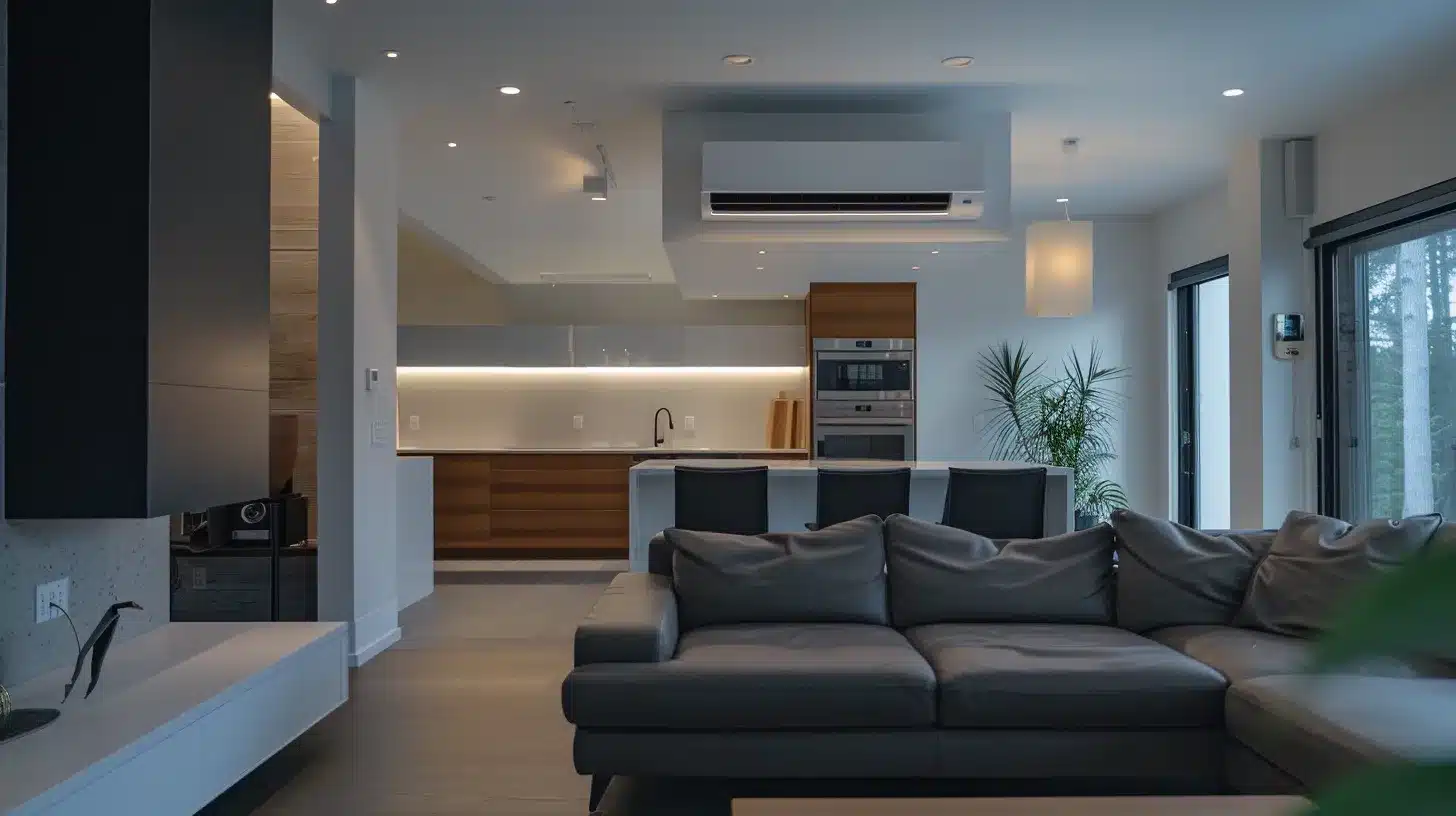Choosing the right HVAC system can feel overwhelming, especially when energy efficiency is a priority. Did you know that efficient HVAC systems can significantly reduce both energy bills and pollution levels? This article will explore the key components of energy-efficient HVAC systems, practical benefits for residents within Columbus, and the importance of climate considerations. Readers will gain insights into how investing in renewable energy technologies, such as heat pumps, can enhance comfort and sustainability in their homes while minimizing reliance on traditional oil sources.
Key Takeaways
- Energy-efficient HVAC systems significantly lower utility bills for homeowners
- Advanced technologies improve indoor air quality and contribute to healthier living environments
- Smart thermostats enable precise control over heating and cooling, enhancing energy savings
- Regular maintenance is essential for optimal performance and longevity of HVAC systems
Key Components of Energy Efficient HVAC Systems

Energy efficient HVAC systems rely on several key components to optimize performance and minimize environmental impact. Ohio heating’s high-efficiency heating equipment ensures optimal energy use, while advanced cooling technologies enhance comfort and reduce energy consumption. Smart thermostat integration allows customers to manage their heating systems effectively, contributing to lower carbon footprints. Additionally, enhanced air filtration systems improve indoor air quality, making these features essential in modern construction projects.
High-Efficiency Heating Equipment
High-efficiency heating equipment is crucial for optimizing energy use in HVAC systems, especially in the face of rising inflation. These systems often include advanced air handlers that enhance indoor air quality by efficiently circulating heated air throughout homes. Furthermore, many of these units come with substantial warranties, providing homeowners with peace of mind for their investment, while also offering energy-efficient water heating solutions that significantly lower monthly utility bills.
Advanced Cooling Technologies
Advanced cooling technologies play a vital role in enhancing energy efficiency within HVAC systems. These systems often incorporate innovative designs, such as geothermal HVAC systems, which utilize the earth’s natural temperature to regulate indoor environments while significantly reducing carbon emissions. By integrating these cooling options, alongside high-performance water heaters, businesses like manufacturing facilities and data centers can maintain optimal operational temperatures while lowering overall energy consumption.
| Component | Description | Benefits |
|---|---|---|
| Geothermal HVAC Systems | Systems that exchange heat with the earth to provide heating and cooling. | Reduced carbon emissions and lower energy bills. |
| High-Performance Water Heaters | Efficient units meant to minimize energy usage while heating water. | Lower operating costs and improved sustainability. |
| Smart Cooling Solutions | Advanced technology to manage indoor temperatures effectively. | Automated adjustments for energy savings and enhanced comfort. |
Smart Thermostat Integration
Smart thermostat integration is a vital aspect of energy-efficient HVAC systems significantly impacting both residential and commercial settings. These devices enable users to monitor and adjust their heating and cooling systems remotely, which helps in reducing energy consumption by allowing precise temperature control based on occupancy patterns. Additionally, many of these smart systems can optimize the seasonal energy efficiency ratio (SEER) of HVAC units, which is crucial for maximizing savings and minimizing greenhouse gas emissions, making them an attractive option for property owners seeking tax incentives for energy-efficient upgrades.
Enhanced Air Filtration Systems
Enhanced air filtration systems are essential in energy-efficient HVAC solutions, particularly with increasing concerns surrounding indoor air quality and the climate impacts of traditional HVAC options. Brands like Goodman produce units that effectively filter out pollutants, thereby reducing wear and tear on heat exchangers through improved airflow.
Energy-efficient HVAC systems do more than save power; they change lives for the better. Understanding these systems reveals their many advantages, and the benefits are worth exploring.
Benefits of Energy Efficient HVAC Systems

Energy-efficient HVAC systems offer significant benefits, including reduced energy consumption and lower utility bills. Improved indoor air quality enhances overall health, while properties equipped with these systems see increased home value. These advantages often come with tax credits, making them a prudent investment. Each aspect will be examined in detail, showcasing their value for homeowners and businesses alike.
Reduced Energy Consumption
Energy-efficient HVAC systems significantly reduce overall energy consumption, translating into lower utility bills for homeowners and businesses. By selecting high-efficiency equipment and utilizing federal tax credits for installation, property owners can take advantage of substantial rebates while investing in sustainable solutions. These systems not only enhance comfort but also align with Ohio’s commitment to improving energy efficiency across all sectors.
| Benefit | Description | Actionable Insight |
|---|---|---|
| Reduced Energy Consumption | Lower energy bills through efficient heating and cooling systems. | Utilize federal tax credits and rebates for installation to maximize savings. |
| Improved Efficiency | Advanced equipment that optimizes energy use. | Invest in high-efficiency HVAC units for long-term savings. |
| Increased Property Value | Energy-efficient homes often see higher market values. | Upgrade systems as a smart investment for future resale. |
Lower Utility Bills
Lower utility bills are one of the most significant advantages of energy-efficient HVAC systems. By utilizing advanced components such as high-efficiency condensers and eco-friendly refrigerants, these systems consume less energy while providing optimal heating and cooling. Regular maintenance, including timely air filter replacements, ensures that these systems operate efficiently, further reducing energy costs and benefiting the homeowner’s budget while supporting environmentally friendly practices.
Improved Indoor Air Quality
Improved indoor air quality is a significant benefit of energy-efficient HVAC systems, especially for homeowners utilizing technologies like air source heat pumps and propane heating solutions. These systems are designed to reduce pollutants and allergens, providing cleaner air for occupants. Investing in these efficient systems not only enhances comfort but also addresses concerns about respiratory health, making it vital for families seeking safer living environments.
Increased Home Value
Energy-efficient HVAC systems significantly enhance home value by reducing the overall environmental footprint and minimizing air pollution. Advanced features, including pumps that boast high annual fuel utilization efficiency, appeal to potential buyers looking for sustainable options. As market trends show increased awareness of energy efficiency, homeowners investing in such systems often find their properties attract more interest compared to similar homes in nearby areas.
Ohio faces unique climate challenges that affect home comfort. Understanding these factors can guide homeowners in making the best HVAC choices.
Climate Considerations for HVAC Efficiency

Adapting to seasonal temperature variations is essential for optimizing HVAC efficiency. Effective humidity control measures and proper insulation techniques minimize energy loss and enhance overall system performance. These energy efficient improvements not only support comfort but also qualify homeowners for tax incentives, making upgrades like high-efficiency furnaces financially advantageous.
Adapting to Seasonal Temperature Variations
Adapting to seasonal temperature variations is essential for maximizing energy efficiency in HVAC systems. Homeowners can benefit from conducting regular inspections to ensure their heating and cooling units, including heat pumps, operate effectively during colder months. Utilizing natural gas systems in conjunction with energy-efficient upgrades can lead to significant utility savings, while leveraging available credits for these improvements further offsets installation costs and encourages sustainable practices.
Humidity Control Measures
Humidity control measures are essential for maintaining HVAC efficiency, especially given the region’s varying climate conditions. By utilizing smart thermostats, property owners can monitor indoor humidity levels and adjust systems accordingly, optimizing performance based on real-time data. In addition, implementing a geothermal heating system with a ground loop provides not only effective temperature regulation but also significant energy savings, enhancing comfort while reducing energy consumption in environments like data centers. Understanding and addressing humidity can lead to healthier indoor air quality and a more comfortable living or working spaces.
Insulation and Sealing Techniques
Effective insulation and sealing techniques are critical components of energy-efficient HVAC systems. Properly insulating a home minimizes heat transfer, ensuring that heating systems and air handlers operate at optimal efficiency throughout varying seasonal conditions. Additionally, sealing gaps and leaks, especially around windows and ductwork, prevents the loss of heated or cooled air, contributing to lower energy bills and improved comfort levels indoors:
| Technique | Description | Benefits |
|---|---|---|
| Insulation | Material used to reduce heat transfer within the home. | Enhanced energy efficiency and comfort. |
| Sealing Gaps | Using caulk or weatherstripping to close openings. | Reduced energy loss and improved indoor air quality. |
| Duct Sealing | Repairing leaks and ensuring ducts are airtight. | Increased system efficiency and effective airflow. |
As homeowners consider climate factors in HVAC choices, the search for efficiency leads to a valuable resource. Understanding the benefits of Energy Star rated systems reveals how they can make a significant difference.
Essential Maintenance Practices for HVAC Systems

Regular filter replacements, seasonal inspections and tune-ups, and the importance of professional servicing are critical for maintaining energy-efficient HVAC systems. Regularly changing filters ensures optimal airflow and air quality, while seasonal check-ups enhance system performance. Engaging professionals for servicing addresses potential issues promptly, ultimately prolonging the lifespan of HVAC equipment and improving overall efficiency.
Regular Filter Replacements
Regular filter replacements are essential for maintaining the efficiency of energy-efficient HVAC systems. Homeowners should replace filters every one to three months, depending on usage and the type of filter used. Consistently changing filters enhances airflow, improves indoor air quality, and ensures that the HVAC system operates at peak efficiency, ultimately contributing to lower energy bills and a longer lifespan for the equipment.
Seasonal Inspections and Tune-Ups
Seasonal inspections and tune-ups are essential for maintaining the efficiency and longevity of energy-efficient HVAC systems. These proactive measures involve a thorough examination of the system, ensuring that all components are functioning correctly before extreme weather conditions set in. Engaging a qualified technician for these inspections helps identify potential issues early, providing homeowners with peace of mind and ensuring optimal performance, particularly in the face of fluctuating temperatures and humidity levels common in the region.
Importance of Professional Servicing
Professional servicing is essential for maintaining energy-efficient HVAC systems, as it ensures that all components function optimally. Technicians possess the expertise to identify issues that may not be evident during regular use, helping to prevent costly repairs and avoid system downtime. Regular professional maintenance not only extends the lifespan of HVAC units but also ensures they operate at peak efficiency, maximizing energy savings for homeowners.
| Maintenance Activity | Description | Benefits |
|---|---|---|
| Regular Inspections | Thorough check-ups of HVAC equipment to identify potential issues. | Prevents costly repairs and ensures optimal system performance. |
| Filter Changes | Replacement of air filters to maintain airflow and air quality. | Enhanced efficiency leading to lower energy bills. |
| System Tune-Ups | Adjustments to optimize performance and efficiency levels. | Increases system lifespan and reliability. |
After ensuring your HVAC system runs well, it’s time to look ahead. Investing in new technology could change the air you breathe and how you feel at home.
Investing in Innovative HVAC Technology

Variable Refrigerant Flow systems offer precise temperature control and energy efficiency, making them a popular choice for modern homes. Ductless mini-split options provide flexible installation and targeted heating and cooling without extensive ductwork. Moreover, smart home compatibility features allow users to integrate their HVAC systems with home automation, improving energy management and comfort. Each of these innovations is crucial for enhancing overall system performance.
Variable Refrigerant Flow Systems
Variable Refrigerant Flow (VRF) systems are increasingly popular for their energy efficiency and flexibility. These systems allow for precise temperature control in different areas of a building by modulating refrigerant flow, which is particularly beneficial for homes and businesses with varying heating and cooling needs. By offering both heating and cooling simultaneously to different zones, VRF systems optimize energy use and contribute to lower utility costs, addressing the demand for both comfort and sustainability:
- Efficient temperature control in diverse spaces.
- Simultaneous heating and cooling capabilities.
- Reduced energy consumption leading to lower utility bills.
Ductless Mini-Split Options
Ductless mini-split systems are a highly efficient option for heating and cooling, offering flexibility and zone control without the need for extensive ductwork. These systems consist of an outdoor compressor unit and one or more indoor air-handling units, allowing homeowners to customize temperature settings for individual rooms, leading to energy savings. Their installation can be particularly beneficial for older homes or new additions where traditional duct systems may not be feasible:
- Flexible installation options adapt to various home designs.
- Zone control enhances comfort by allowing different temperatures in different spaces.
- Energy-efficient operation significantly reduces utility costs.
Smart Home Compatibility Features
Smart home compatibility features are integral to modern energy-efficient HVAC systems, enhancing both convenience and efficiency. These systems enable homeowners to manage heating and cooling remotely through smartphone applications or voice-activated devices, facilitating precise control over indoor climates. For example, users can adjust settings based on their daily schedules, ensuring energy savings when the home is unoccupied while maintaining optimal comfort levels when they return.
Conclusion
Energy efficient HVAC systems play a crucial role in reducing energy consumption and lowering utility bills, making them an important investment for homeowners and businesses. Features such as high-efficiency heating equipment, advanced cooling technologies, smart thermostat integration, and enhanced air filtration contribute to improved indoor air quality and comfort. By adopting these innovative systems, property owners not only enhance their living environments but also align with sustainability goals that benefit the broader community. Embracing energy-efficient HVAC solutions ultimately supports economic savings and environmental responsibility, underscoring their significance in today’s society.
Reach out to us
Be sure to reach out to us if you have issues with your HVAC system or need an install. Our number is 614-863-6666, and we are conveniently located in Columbus, Ohio.
